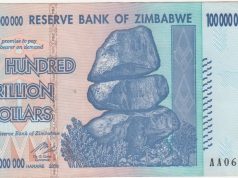Customer “edugagement” – the next frontier for loyalty
Whether for a new launch or increasing awareness of existing benefits, educating customers about your product offering is critical. This is no less true amongst loyalty programs that for years have been telling us about their reward offerings and the various ways to earn their points.
This challenge is particularly acute amongst airline frequent flyer programs, where members still largely believe that the only way to earn miles is by flying. As a result, airline programs want to remind us that we can also earn miles for much more than just air travel. In fact, programs like American AAdvantage and United Mileage Plus have partners across a range of categories including credit cards, hotels, car rental companies, retailers, restaurants and more. Unfortunately, many frequent flyers don’t hear these messages and continue to overlook these broader mileage-earning opportunities.
At Friendefi, we’ve found that gamification can be an effective tool for not only improving members’ understanding of their frequent flyer program but also improving engagement with partners.
In fact, “edugagement” has become an increasing area of interest for frequent flyer programs that are incorporating game principles and design more and more into their marketing to get their messages across. The dynamics of game-play are not only well suited to education and awareness-based objectives, but the offer of frequent flyer miles can be an alluring prize for completing tasks or for winning games.
A great example is Aeroplan’s Star Challenge on Facebook. For this initiative, Friendefi created a Facebook application where members could earn rewards for using the loyalty program’s social channels and playing weekly trivia games about the program. Tens of thousands of program members participated in the challenge, many returning each week during the five-week promotion to play the newest trivia game. Members earned a ‘star’ each time they successfully completed an action or a trivia game and at end could earn bonus miles based on the total number of stars accumulated.
Like other uses of gamification, we believe that the following are good guidelines for a successful edugagement initiative:
- Simple and transparent scoring to provide feedback on how well you’re playing;
- Levels or increasing difficulty for a sense of progression;
- Comparison with other players to foster competition; and
- Recognition and rewards for achievements.
For consumer marketing initiatives, game-play should rarely be “immersive” or complex, as customers can get quickly turned-off. However, that still leaves lots of room to design fun and effective experiences. As already described, simple games, like trivia, can be very effective for edugagement. Not only are players forced to think, but they can see immediately whether they’re right or wrong. More visually oriented games where players can; for example, match objects to one another (e.g. a logo to a brand statement) or discover through trial-and-error (e.g. flipping tiles to uncover product attributes) can also be fun and help instill your message. Many game designers can get pretty creative, even working within the necessary limitations for consumer marketing.
And the experience can be enhanced through a sense of competition with others – whether with the players’ social network friends, or all players – through devices like leaderboards, or showing your score compared to the high and average scores. In fact, it’s often the details in edugagement initiatives that make all the difference.
Aaron Carr is the Founder and CEO of Friendefi, a new platform for the loyalty industry to enhance consumer engagement through social media and gamification.










Nice article. The design of gamification was great in this site.